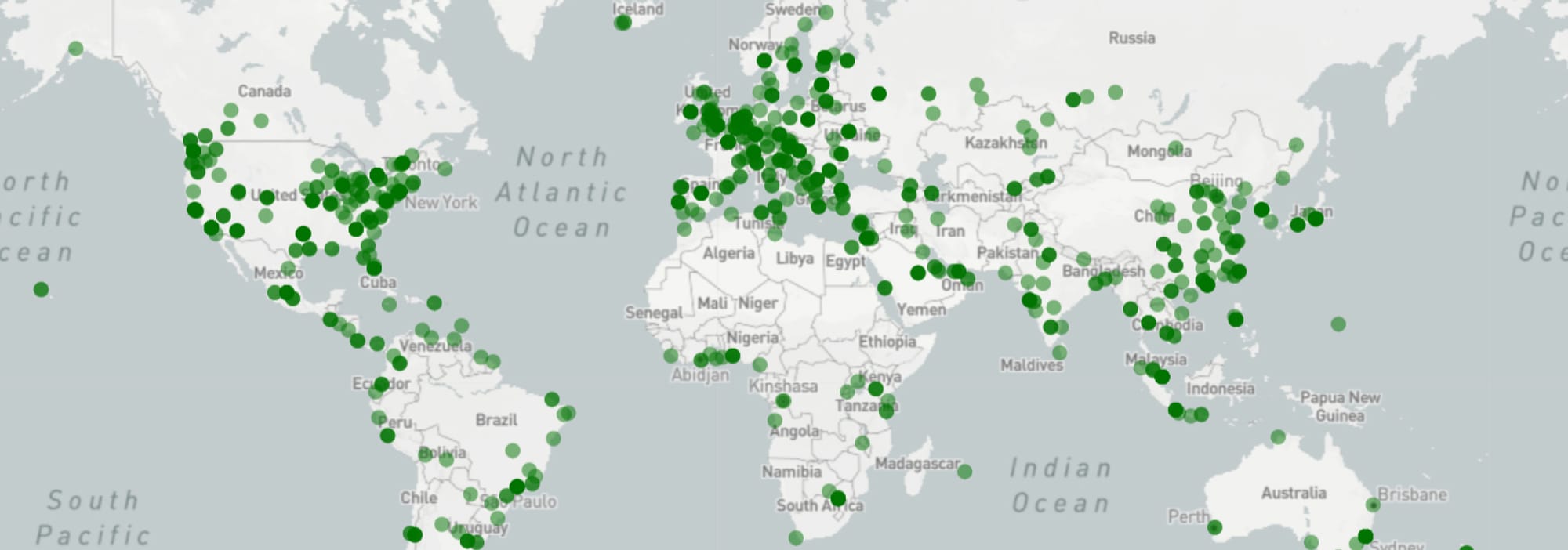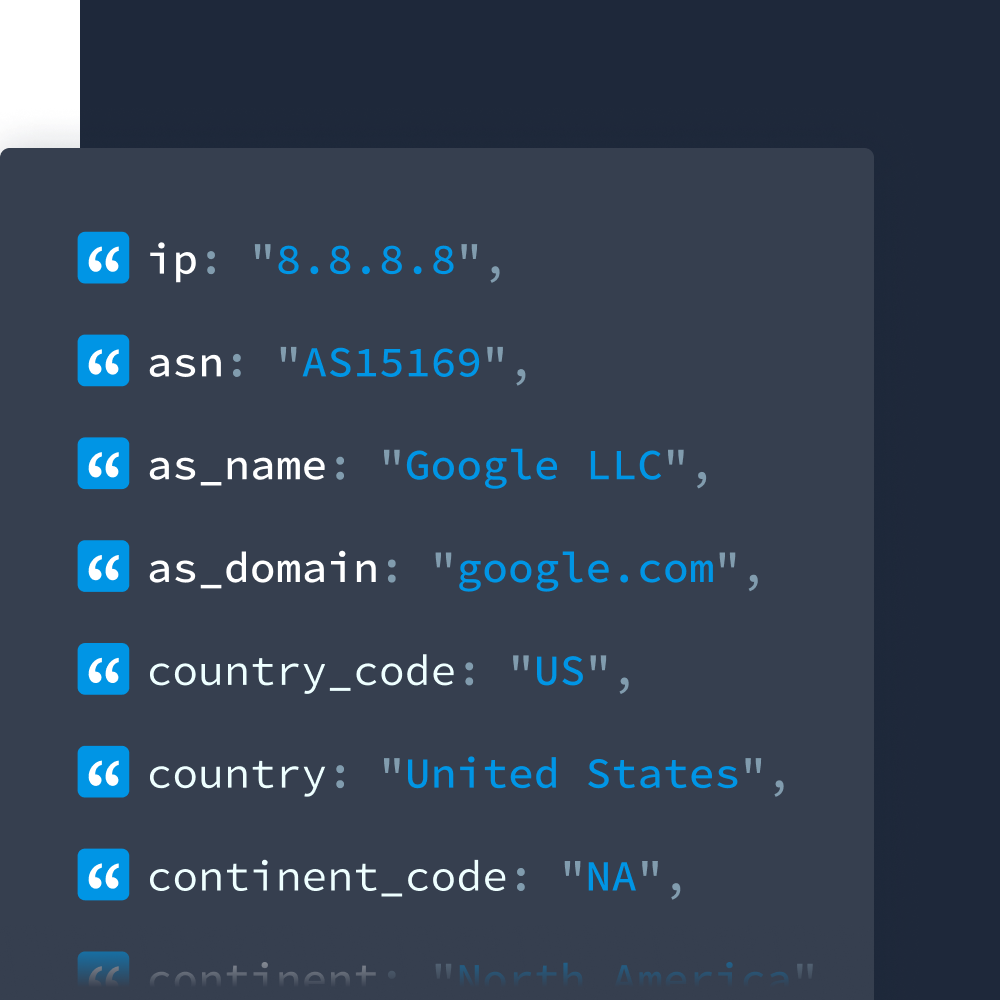Inside IPinfo’s Probe Network: How Our View of the Internet Fuels Superior IP Data Accuracy

The foundation of our unmatched IP geolocation accuracy rests on our proprietary Probe Network aka ProbeNet. Built and maintained entirely in-house, this distributed network of servers gives us a truly global, ground-truth view of the internet. And it’s what sets us apart from other IP geolocation providers.
As of June 10, 2025, our Probe Network spans 1,001 active servers across 130 countries and 428 cities, operated through 255 providers and 400 unique ASNs. It’s an ambitious, complex system managed by a small, highly skilled team.
In this article, we’re pulling back the curtain. You’ll get an inside look at how we scale, monitor, and improve the Probe Network, and how we carefully select and collaborate with vendor partners to keep it running with precision.
An Innovative Approach to IP Data
Traditionally, IP geolocation data was sourced from geofeeds and corrections, as well as hints from WHOIS records. However, we quickly realized that this "self-reported" information is often the root cause of bad IP geolocation data. Regurgitating publicly available IP location data is not how we can add value to the world. We seek to do more than that, and establish an evidence-based approach in generating IP geolocation data.
From that philosophy, IPinfo’s Probe Network was born. The Probe Network represents a distributed, ever-expanding network of servers through which we run active measurements across the entire internet. The active measurements are carried out using ping, traceroute, and networking diagnostic measurements that are aggregated from our probe servers, challenged through our data infrastructure, and through that, we finally produce a range of internet data products.
Teamwork and the Community at its Core
The Probe Network itself acts as the main data pipeline of IPinfo. We are truly one of the few companies out there able to manage such a large-scale network. The success of the Probe Network is largely due to the collaboration shared among different teams.
Probe Network commercial management (research, sourcing, deal-making, and delivery) is the responsibility of the developer relations team. Our founder and CEO Ben Dowling actively hunts for new servers and coordinates the ProbeNet project.
Our data team makes recommendations on which ASNs and locations they need servers in. After the server is purchased and initiated, the infrastructure team is responsible for the automation, data egress, and technical maintenance of the servers. The data team, along with the infrastructure team, fine-tunes and operates the Probe Network from that point on.
Our greater community of IPinfo users also helps us find and make recommendations for servers. As industry insiders themselves, they actively recommend and guide us in acquiring servers. Also, we have our fantastic users who generously sponsor us servers and or give permanent discounts.
New Locations, Improved Precision
We currently have Probe Network servers in 130 countries and 428 cities. While this provides strong global coverage, there are still many densely populated cities and even some entire countries where we don’t yet have servers.
Why does this matter? The accuracy of our IP geolocation data significantly improves in regions where we have Probe Network servers. For example, due to high server density in North America, Western and Eastern Europe, South America, East Asia, the Middle East, and Australia, our data in these regions is extremely precise.
In contrast, regions like the Pacific Island nations, Northern Africa, and Central America have fewer servers, which limits our ability to fine-tune geolocation accuracy there. Even so, our data quality in these areas remains ahead of industry standards.
To push the boundaries further, we’re working toward near-perfect accuracy worldwide and having a server in every country and all major cities — something no one else in the industry has achieved.
See how our Probe Network expanded in Q1 2025.
High RTT ASNs
Our “active measurement data” means that we collect RTT and network data from different servers on IP addresses. Through layering network attributes and geometrical calculations, we triangulate the location of an IP address. This means that we need noiseless data in terms of RTT, or else the geolocation radius based on the RTT would be massive.
For that reason, we try to identify ASNs and hosting providers where we have RTTs that go beyond certain acceptable thresholds and try to host a probe server there. At this moment, across 76 thousand ASNs all over the world, our minimum RTT measured is less than 10 MS for 80% of the ASNs. It is a massive achievement for sure, but we are constantly looking to improve this number.
Even if an ASN has only a /24 range assignment (only 256 IPs), if our general RTT is high for them, we will consider hosting a probe server in their network to improve their ASN and peering ASN data.
IPv6
We believe that IPv6 is the future, and we are the only providers in the industry who are working diligently to enhance our data for IPv6. Therefore, in that endeavor, we often prioritize vendors who can offer IPv6 connections to our servers. Currently, 54% of our servers are IPv6 enabled and growing!
How We Buy Servers
Being the internet data company, the majority of the research and vendor selection we do is from our own data.
After identifying the country or ASNs where we need to host our servers, we look into the ASN domain, company domain, and sometimes we look into hosted domain data.
For example, if an ASN has a high RTT, we can start by checking their organization domain to see if they are selling servers. If they do not have server products listed, we contact them and try to get a deal as our first priority is to get the server directly from the ASN. If they do not offer hosting, we investigate the ranges to see which companies use them to offer hosting services. If that does not work, we sometimes evaluate all the hosted domains on the ASN to see if there are hosting provider websites there.
At the same time, we seek assistance from our IPinfo community and hosting provider community as well. We have great contacts with many community members who are experts in the industry and operate a large number of servers themselves. We seek their guidance on these matters and they sometimes even introduce us directly to hosting providers.
Server Configuration and Setup
Our probe server requirements are quite minimal:
- 2 CPU cores
- 4 GB of RAM
- 60 GB of storage
- 300 GB+ of monthly bandwidth limit
- 100 Mbps+ bandwidth speed
- Ubuntu 22+
- 1 IPv4
- Unmanaged
- If you can offer IPv6 IPs, that would be great.
We prefer dedicated servers or virtual private servers. After the server passes through our initial evaluation and setup stage, we trigger an automation and introduce that server to our fleet of servers.
If you are interested in improving our data for your ASN or location, you can help us by filling out the form: https://forms.gle/YjHqXHkTQ6G2vq3v8.
Our Commitment to Universal Data Access
The Probe Network is an essential point of IPinfo, and every team member actively participates and contributes to its success. But going beyond that, our customers, users, and the IPinfo community at large help us research, source, and recommend servers.
Even though we are a business, many hosting providers who are IPinfo service users have generously donated servers. The sponsored servers are not only an important part of our Probe Network, but also demonstrate the commitment we show to our users and are often paid forward. We are truly grateful to the great hosting providers, vendors, and community who help us successfully run the Probe Network and ensure we provide the best in class IP geolocation data the world has seen.
Experience our data accuracy difference
From fraud detection to content personalization, our precise data powers your innovations.
About the author

Abdullah leads the IPinfo internet data community and he also works on expanding IPinfo’s probe network of servers across the globe.
